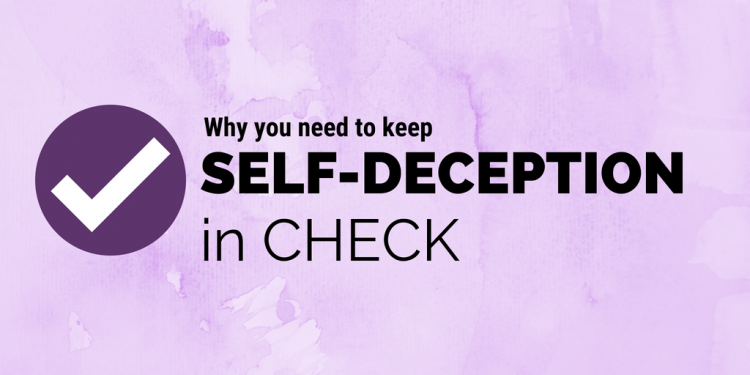Self-deception
SPECIAL TO THE GLOBE AND MAIL
The Globe and Mail and Morneau Shepell have created the Employee Recommended Workplace Award to honour companies that put the health and well-being of their employees first. Read about the 2018 winners of the award at tgam.ca/workplaceaward.
Registration is now open for the 2019 Employee Recommended Workplace Awards at www.employeerecommended.com.
How familiar are you with the idea of self-deception?
Self-deception is the mental process a person can go through to deny or rationalize information. Someone may engage in self-deception to convince themselves that their opinion is more logical and true than some counter-position or argument. Self-deception is basically lying to yourself. For example, an employee believes they will be promoted to a senior leadership position one day if they keep working hard, despite the fact that after 15 years at that employer they haven’t even been promoted to front-line manager.
One challenge with self-deception is when we do it unconsciously, it reinforces the story we believe to be true. This can result in unnecessary consequences, such as believing that if we wait long enough a person we care about will eventually feel the same about us, resulting in loneliness.
When a person is not self-aware, self-deception often moves beyond lying to themselves. Carrying on this lie with others without revealing any indication they know what they’re doing is deception.
This microskill explores how common self-deception is, how it can be both a positive and negative, and why it’s beneficial to pay close attention to how we engage in self-deception.
Awareness
One of the most common forms of self-deception is self-promotion (for example, telling others we’re more talented at something than we really are). It’s common for people to overestimate their abilities as a way to promote self-confidence and positive feelings. In fact, one study found that people who engage in self-deception about abilities often were perceived as being more competent, which influences their self-esteem and social status.
The flip side of self-deception is the time, emotional drain and energy that can be lost by not accepting a fact, such as someone you deeply care about not reciprocating the feeling.
Accountability
We all have two worlds we can relate to. One is our internal mental world where we construct in our mind who we think we are, who we think we can become and what we desire others to think of us.
The second is how we’re perceived by the people we love, work with and live with in our community. What we project about ourselves often influences what others think about who we are and what we’re capable of.
The challenge with self-deception is it really can be a double-edged sword. It can limit us from believing in our potential (for example, I’m not smart, I’m not skilled, I’m not lovable, I’m not worthy). These self-lies can limit our potential and hope.
On the other side, exaggeration of abilities and skills may improve our self-confidence, but it can come with a risk when we’re crossing ethical lines. A new study found that 85 per cent of job applicants lied on their resume, which is evidence of how self-deception is the art of lying to yourself about your abilities as a way to manipulate what others think.
Action
Our mental health is influenced by the degree of positive versus negative thinking we have about ourselves and our self-worth, as well as what we think others think about us.
Self-deception can be harmful when a person is found to be lying about their abilities. The more objectively and honestly we evaluate our thinking before we act on it, the less likely we will put ourselves in situations that may keep us stuck or may lead us to lose what we have. We may remain single because we believe that special person will come to us one day, or we may lose a chance at a job because we lie on a résumé.
Tips for managing self-deception:
Be clear on who you really are at home and at work.
Leveraging your most trusted friends, mentors or partner to obtain regular, objective, honest feedback can be helpful in keeping you grounded in your strengths and gaps.
Ask yourself if it’s okay to deceive others and why.
The human mind can play tricks on us. If we’re not careful, we can tell ourselves stories of why doing something such as exaggerating the truth is helpful. When we’re aware and in tune, we can challenge ourselves by asking a simple question: “If the story I’m about to tell were reported on the front page of the newspaper, would I be okay with that?” Self-editing can be one of the best ways to mitigate the risk that self-deception can create when we start to project that false view to the world.
Be clear between confidence and character.
Most of us exaggerate at times to make a story sound better, or we forget some fact and replace it with another that may be more favourable to the story than the original. The more we can focus on our character and become comfortable with who we are, the more likely we will accept who we are. Our mental health will be enhanced by learning to accept and become more content with ourselves and our current station in life.
This article was originally published on the Globe and Mail website and is reprinted here with permission.
Bill Howatt is the chief research and development officer of work force productivity with Morneau Shepell in Toronto.
You can find all the stories in this series at tgam.ca/workplaceaward
Want more curated content delivered straight to your inbox?






No Comment